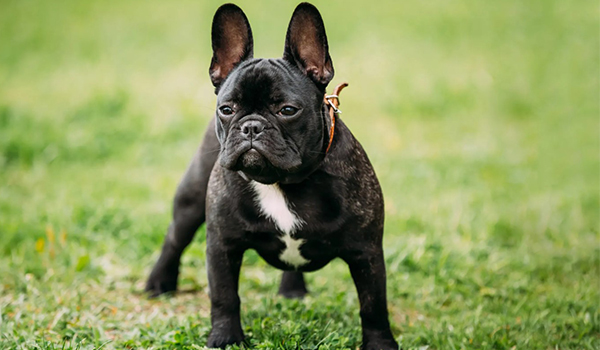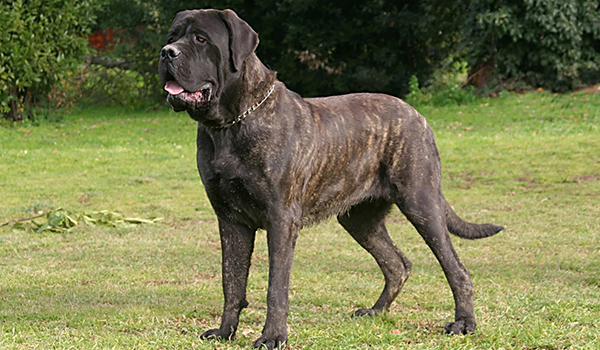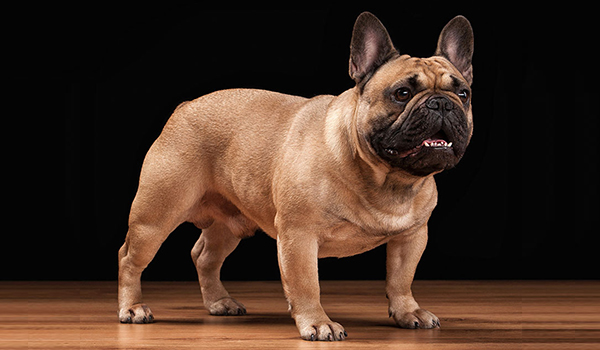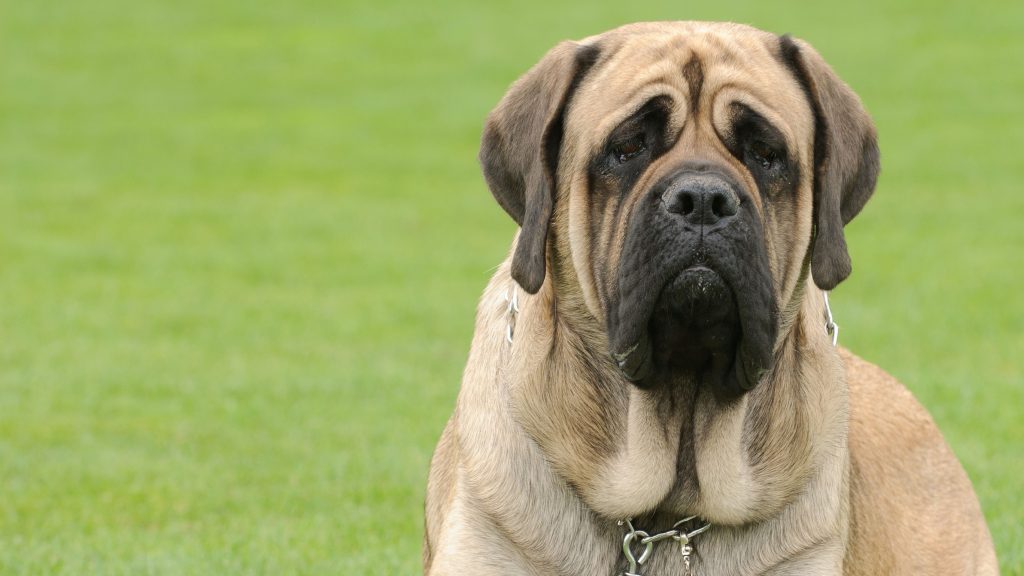
The Mastiff, often called the Old English Mastiff, is the definition of a gentle giant. As one of the most massive dog breeds in the world, they combine immense strength and a formidable presence with a noble, calm, and deeply affectionate heart. Their sheer size is awe-inspiring, but it is their loyal, patient, and loving nature that truly defines them. Living with a Mastiff is a unique commitment that requires ample space, a robust budget, and a heart full of love.
This comprehensive guide will explore the reality of life with a Mastiff to help you determine if you can provide the home this magnificent, colossal companion needs to thrive.
Breed Overview
- Group: Working
- Height: 27.5 – 30+ inches (at the shoulder)
- Weight: 120 – 230 pounds (females are typically smaller, but all are immense)
- Life Span: 6 – 10 years (often on the shorter end due to their giant size)
- Coat: Short, straight, and coarse with a dense undercoat. Colors include fawn, apricot, or brindle, all with a dark mask on the muzzle and ears.
A Brief History: The Guardian of Ages
The Mastiff is one of the most ancient breeds, with a history dating back thousands of years. Their ancestors, known as Molossers, were used by Assyrians, Egyptians, and Romans as war dogs and gladiators in the arena. They were brought to Britain, where they were refined into the breed we know today, used for guarding estates against predators and poachers.
Their courage and strength were legendary. In the 19th century, they were nearly lost but were revived by dedicated breeders. Their history as guardians has instilled in them a natural protectiveness, but centuries of selective breeding for companionship have softened their temperament into the gentle giant we know today.
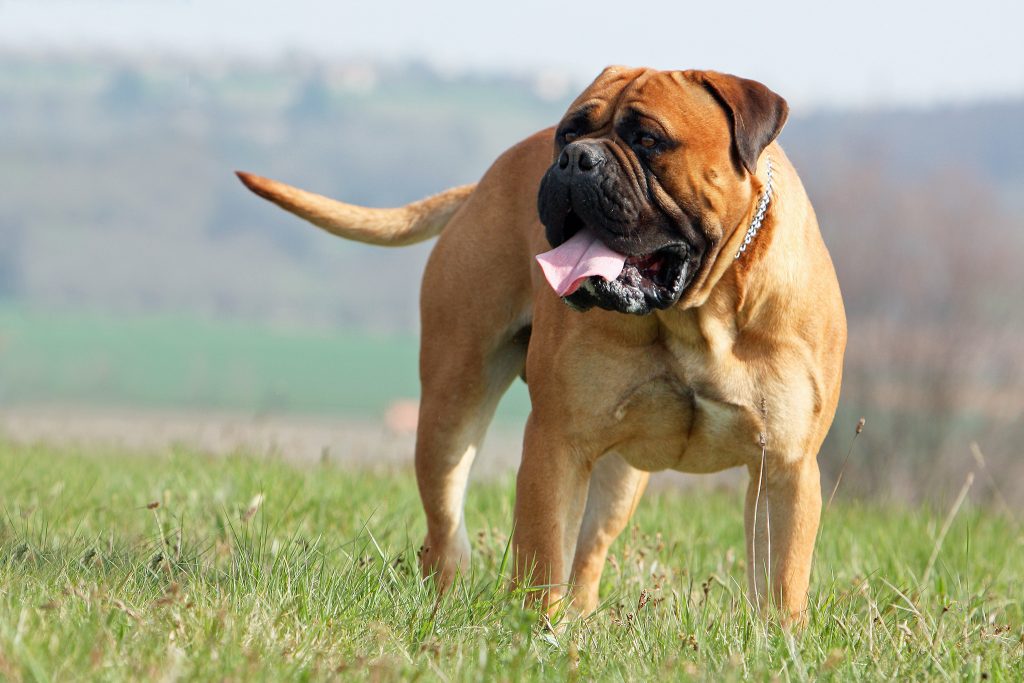
The Mastiff Temperament: A Heart of Gold Beneath the Mass
A well-bred Mastiff’s temperament is the perfect balance of dignified guardian and devoted couch potato. They are known for their noble and good-natured personality.
- Gentle & Affectionate: Despite their intimidating size, Mastiffs are incredibly gentle, patient, and loving with their families. They are often called “shadow dogs” because they like to stay close to their owners.
- Courageous & Protective: They are natural guardians with a deep, instinctive desire to protect their home and family. They are typically not aggressive but will place themselves between their family and a perceived threat. Their presence alone is a powerful deterrent.
- Calm & Dignified: Mastiffs are the quintessential low-energy indoor dog. They are not hyperactive and are often described as “mellow.” They are perfectly content with long naps and quiet companionship.
- Good-Natured with Children: Their patient and tolerant nature often makes them excellent with children, though their sheer size requires supervision to prevent accidental knocks.
- Reserved with Strangers: They are typically aloof and observant with strangers, but not hostile. Early socialization is crucial to ensure this wariness remains balanced.
Caring for Your Mastiff
Exercise: Less Than You’d Think
Given their size, their exercise needs are surprisingly moderate. Their focus is on companionship, not endurance.
- Daily Requirements: 20-45 minutes of moderate daily exercise is sufficient for an adult. This includes short, leashed walks and gentle play in a secure yard.
- Avoid Overexertion: Puppies and young Mastiffs (under 2 years) should have their exercise strictly controlled to protect their developing joints and bones. Avoid forced running on hard surfaces and long walks.
- Mental Stimulation: They are intelligent but not overly demanding. They are happiest simply being near their family.
Grooming: Manageable but Prolific Shedding
- Brushing: Weekly brushing with a grooming mitt or curry brush is needed to control shedding. They “blow” their undercoat seasonally, during which time daily brushing is necessary to manage the incredible amount of loose fur.
- Bathing: Bathing a Mastiff is a major undertaking. It should be done as needed, which may require a professional groomer or a very large, slip-proof tub.
- Drooling: Be prepared for drool. Mastiffs are famous for their slobber, especially after drinking, eating, or when excited. Keeping a “drool rag” handy is a fact of life.
- Other Needs: Regular nail trimming is crucial for their joint health, along with ear cleaning and teeth brushing.
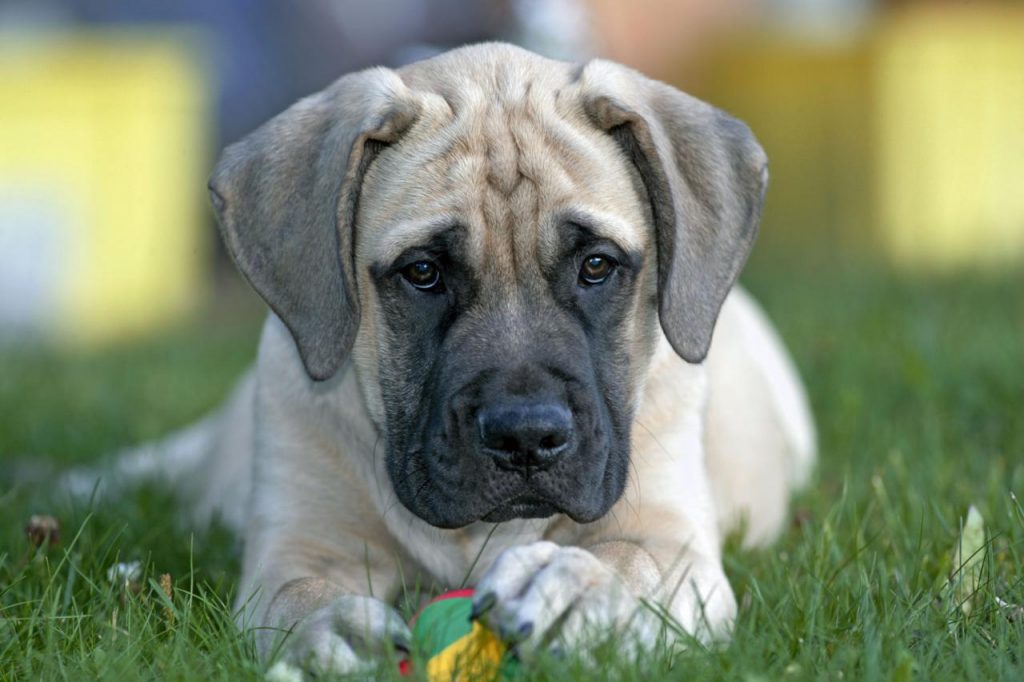
Training: Essential for a Manageable Giant
Training is not optional with a Mastiff; it is a matter of safety and practicality. An untrained 180-pound dog is simply unmanageable.
- Start Immediately: Begin socialization and puppy training the moment you bring your Mastiff home. Positive exposure to a wide variety of people, environments, and sounds is non-negotiable for building a confident, well-mannered adult.
- Focus on Manners: Essential skills include:
- Leash Manners: Teaching them not to pull is paramount.
- Not Jumping Up: A jumping puppy is one thing; a jumping adult Mastiff is dangerous.
- Basic Obedience: Reliable “sit,” “stay,” and “down” commands.
- Use Positive Reinforcement: They are sensitive souls who do not respond well to harsh treatment. Training should be based on patience, consistency, and positive reinforcement.
- Crate Training: Essential for housetraining and providing a safe den for your giant puppy.
Health: What to Be Aware Of
Tragically, the Mastiff’s massive size comes with a shorter lifespan and a predisposition to serious health issues. Responsible breeding is the most critical factor.
- Bloat (Gastric Dilatation-Volvulus): This is the number one killer of large, deep-chested breeds like the Mastiff. It is a life-threatening emergency where the stomach fills with gas and twists. Preventative measures are non-negotiable:
- Feed 2-3 small meals a day instead of one large one.
- Avoid exercise for at least one hour before and two hours after eating.
- Use a slow-feed bowl.
- Know the signs (restlessness, unproductive vomiting, distended abdomen) and have an emergency plan. Many owners opt for a prophylactic gastropexy surgery when the dog is spayed/neutered.
- Hip & Elbow Dysplasia: Common in giant breeds, these degenerative joint conditions can cause severe arthritis and pain.
- Heart Conditions: Such as Dilated Cardiomyopathy (DCM).
- Joint Problems: Their rapid growth and weight put immense strain on their joints.
- Cancer: Unfortunately, cancer is a leading cause of death in the breed.
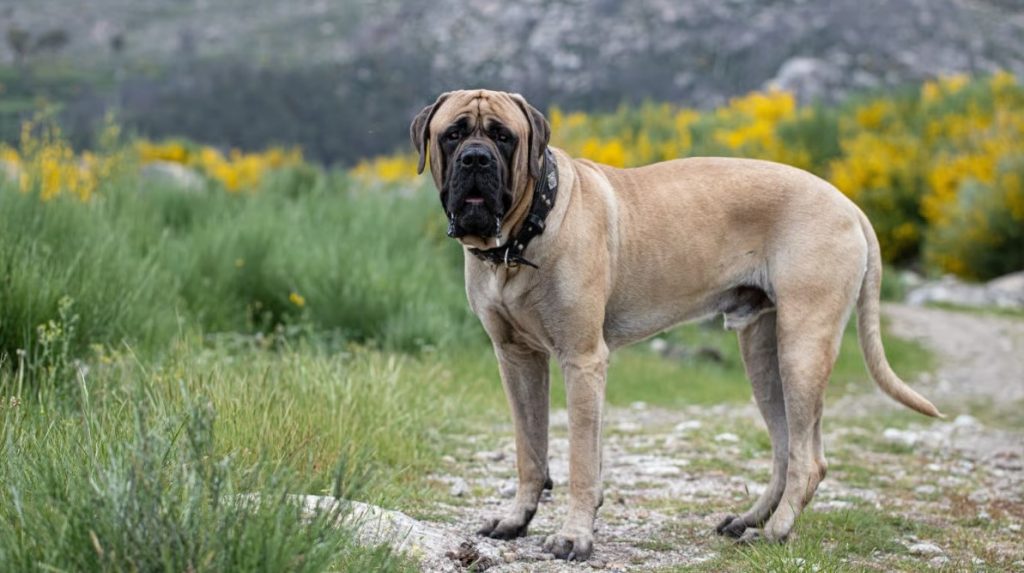
Is a Mastiff Right For You?
A Mastiff might be your perfect match if you:
- Have a very large, spacious home with room for a massive dog bed and a sturdy couch.
- Want a gentle, calm, and low-energy indoor companion.
- Are prepared for the significant financial commitment of feeding and providing veterinary care for a giant breed.
- Are a patient, consistent owner committed to thorough training and socialization.
- Have a sense of humor about drool and don’t mind a little (or a lot of) dog hair.
You should absolutely reconsider if you:
- Live in a small apartment or have limited space.
- Are on a tight budget (everything costs more: food, medication, crates, beds, vet bills).
- Want a long-lived breed (their lifespan is heartbreakingly short).
- Desire a highly active jogging or hiking partner.
- Are unprepared for the emotional and financial toll of potential health issues like bloat.
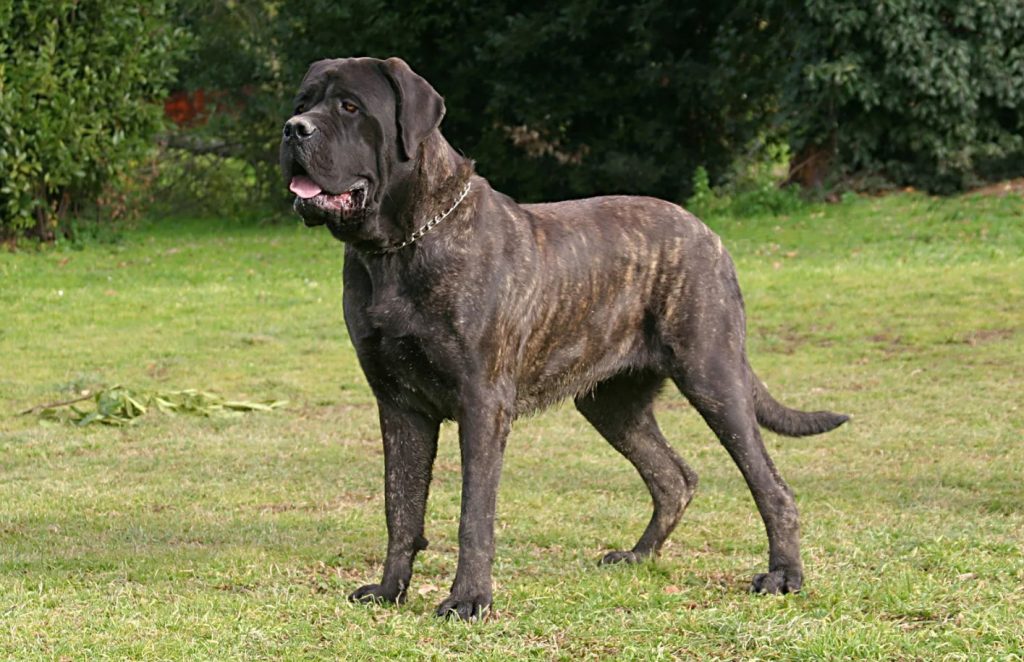
Finding Your Mastiff
- Reputable Breeders: This is paramount. A responsible breeder will:
- Health Test: Provide OFA or PennHIP certifications for hips and elbows, cardiac clearances, and thyroid tests.
- Be Transparent: Discuss their strategies for preventing bloat and be honest about the breed’s health challenges and lifespan.
- Focus on Temperament: Breed for the stable, gentle temperament the breed is known for.
- Rescue & Shelters: Mastiff-specific rescues are very active. Many dogs are surrendered due to their size, cost, or shorter lifespan. Adopting an adult can be a wonderful way to offer a second chance.
Understanding the Cost: The initial purchase price from a reputable breeder in the U.S. is typically $1,500 to $3,000+. The lifetime cost of ownership is the real consideration. Owners must budget for:
- Massive amounts of high-quality food.
- Giant-sized everything: crates, beds, food/water bowls.
- Substantial veterinary bills, including higher costs for anesthesia, medications, and potential emergencies like bloat surgery. Pet insurance is highly recommended.
Bringing a Mastiff into your life is a commitment to a larger-than-life companion. In return for your dedicated care, you will gain the most gentle, loyal, and heartwarming friend whose majestic presence and unwavering devotion will leave an indelible mark on your life, however short their time may be.

